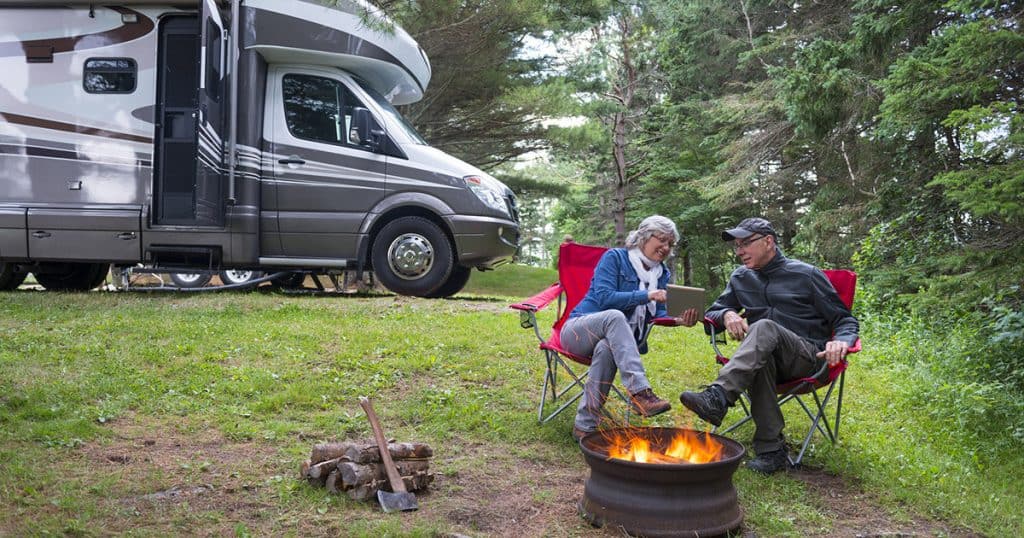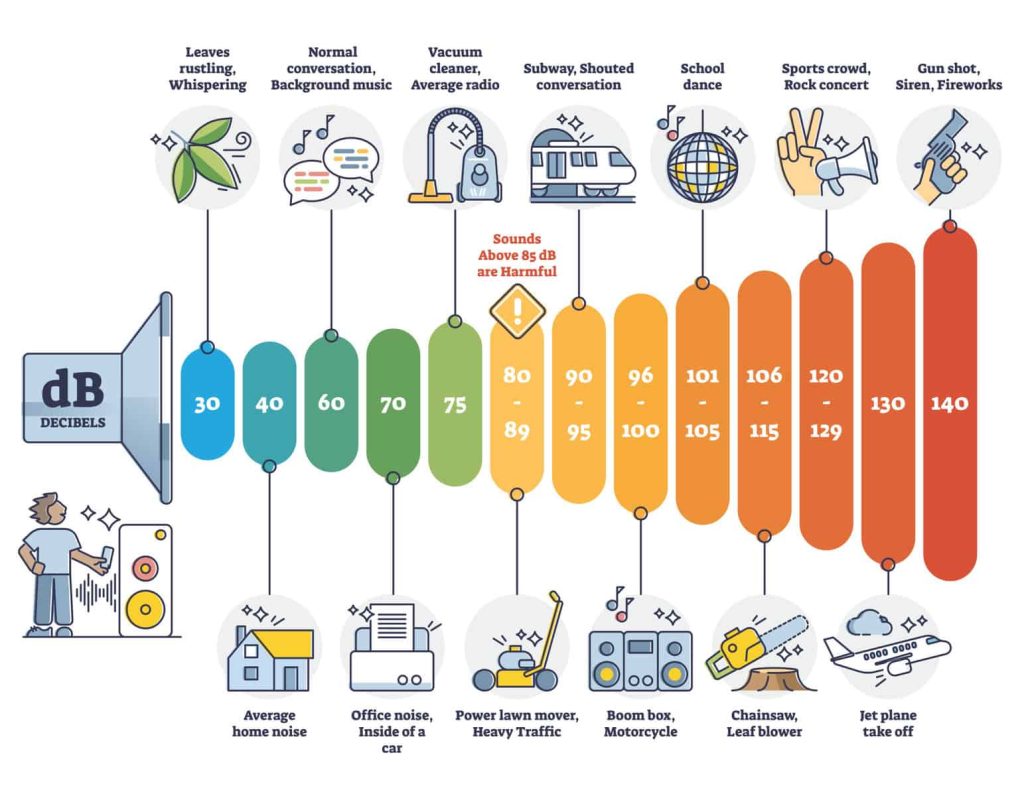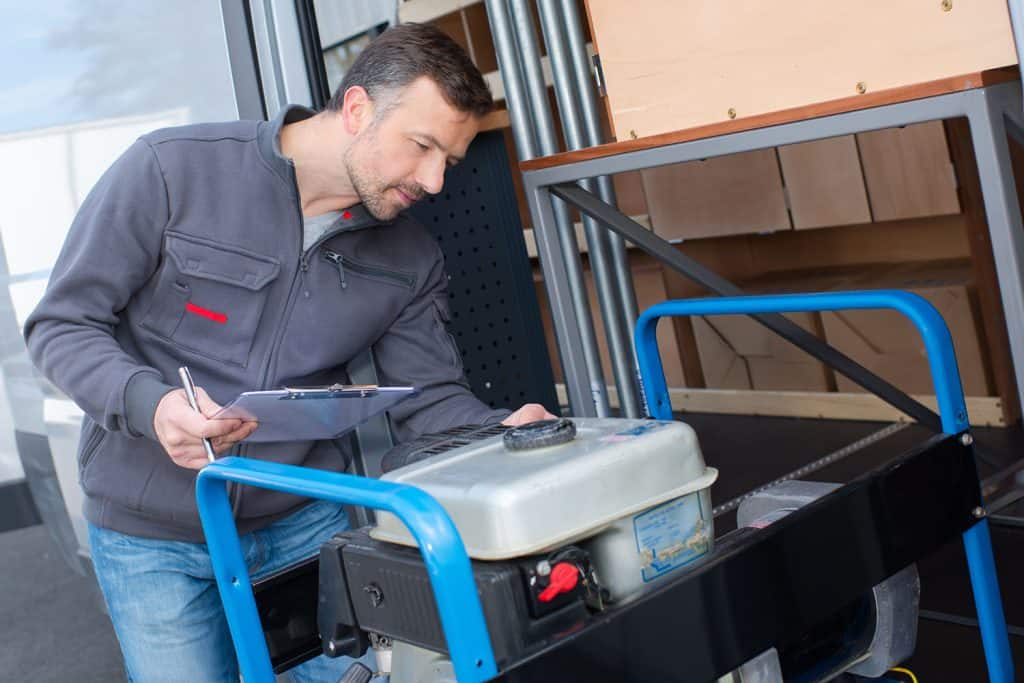As much as we love hosting outdoor events for our friends and loved ones, catering to everyones needs requires attention to detail and safety concerns. This means taking precautions when using portable generators as they can pose significant risks if misused.
In this article, we’ll highlight ways in which you can make use of portable generators efficiently while ensuring the safety of all attendees.
Portable generators have come to play a crucial role in outdoor gatherings such as weddings, music festivals or concerts by providing electrical power where there is none available. From lighting rigs to sound systems that need an outlet for power supply – its surprising how much these devices accelerate the overall experience for guests present at such occasions.
However, with several people around them during large scale events like these, it is essential that proper precautions are taken. So lets dive in as we explore some effective methods for operating these machines safely so that your next event will be free from any accidents or mishaps!

Strategic Setup: Ideal Generator Placement For Outdoor Event Safety
Putting together an outdoor affair requires a careful approach regarding safety concerns. Placing generators appropriately is one critical aspect of guaranteeing your guests’ safety since they can pose potential hazards like carbon monoxide (CO) poisoning. Proper placement mandates ensuring accessibility and proper ventilation while minimizing risks to attendees.
It’s essential to place generators in open areas far from doors, windows or other air intake sources that could contaminate indoor air with exhaust fumes for protection against CO poisoning. In addition, placing them within easy reach and keeping bystanders safely away from running parts require careful planning and execution through temporary barriers or fencing.
To reduce CO exposure effectively, allowing fresh airflow around the generator during operation is critical by placing them several feet away from walls or objects impeding airflow never being used indoors or unventilated spaces like tents or garages.
Consider these critical factors, and you can host a safe and successful event without any potential risk of CO poisoning. Looking ahead, one must make it a priority to ensure proper ventilation when operating portable generators outside as a means of minimizing the related hazards.
Fresh Air First: Ensuring Adequate Ventilation To Minimize CO Risks

When planning an outdoor event, you’ll need to pay attention to safety protocols. This means assessing the risks associated with using portable generators and doing your best to mitigate them.
To ensure that people aren’t exposed to hazardous levels of carbon monoxide gas, it’s essential that generators are positioned at least 20 feet away from congregating areas or places where attendees will spend prolonged periods. It is also worth noting that generators should never be operated indoors since this can cause lethal CO buildup in confined spaces.
When running a generator outside in warm weather conditions, you’ll want to calculate the necessary ventilation based on the units kilowatt output – typically three square feet per KW is needed. In addition, exhaust ports must always point upwards and away from potential populated areas like tents or buildings so as not to create wind driven back drift that could expose people nearby to potentially toxic fumes. To provide power for outdoor events, generators are frequently utilized. Nevertheless, safety should always come first when using them.
It is essential to take certain measures beforehand such as installing functional carbon monoxide detectors nearby and putting up clear signs that warn people about the potential hazards linked with their use. This will aid in reducing any risks that attendees and personnel could face due to hazardous gases such as carbon monoxide exposure.
After taking care of these vital steps, we need to focus on properly distributing electricity for your specific event needs.
Power Management: Safely Distributing Electricity For Outdoor Event Needs
As daylight fades into twilight and shadows start creeping in around us there arises a soft humming sound in the atmosphere – a sure indication that portable generators have been deployed at an outdoor event nearby. However, these trustworthy energy providers must be utilized with great care lest they become dangerous hazards instead of valuable assets. Effective power management is crucial if you want your electrical devices to function safely at any gathering or function held outside in natural settings.
When choosing your generator accurate calculations matter! Generators are measured by wattage or kilowatt (kW) ratings, hence, ensure that you purchase one whose wattage capacity matches up with all electronic components needing simultaneous power supply at your event location.
‘Its equally important to investigate whether each electronic devices voltage requirements align with what your portable generator can output – usually 110v/120V AC outlets. Properly interconnecting various devices demands experience, skills and proper equipment like extension cords, adaptors and circuit breakers where needed.
Before turning on your portable generator outdoors, always double check everything: inspect the cable ends, plugs, sockets for damage and loose connections.
Once you’ve addressed these precautions, it’s time to shift your focus towards proper fuel storage and handling – implementing the best practices for safe generator operation.
Fuel Storage And Handling: Best Practices For Safe Generator Operation
At outdoor events where portable generators supply power taking care to store and handle fuel properly is essential to everyones safety. To ensure you are putting safety first follow these safe operation practices.
Make certain there are no flammable materials near the generator during use or storage. Wait until your generator has cooled down entirely before adding fuel never refuel hot running engines. And always keep any spare cans of fuel locked up and out of childrens reach when possible.
By conscientiously adhering to these gasoline or diesel handling suggestions, you’re effectively mitigating the chances of dangerous situations arising from usage of combustible substances during an event powered by a portable generator.
Grounding Matters: Maintaining Electrical Safety With Outdoor Generators
Hosting an outdoor event requires careful planning, especially when it comes to ensuring the safety of guests! When using portable generators as power sources proper grounding is essential for minimizing risks associated with electrical current exposure. So, how do you make sure your generator is safely grounded? Let’s take a look! One critical component of safe grounding involves regularly checking the ground fault circuit interrupter (GFCI).
This device functions as an automatic shutoff mechanism if any current strays from its intended path- preventing hazardous scenarios like shocks or fires before they can occur.
Another effective way to reduce risks associated with electrical current exposure is by connecting cables to metal stakes driven directly into the ground. This eliminates the probability of stray currents escaping through other pathways like loose connections or wires.
Lastly, remember to inspect all cables and cords frequently throughout your event. Even minimal damage or fraying in these components could create serious safety hazards that can’t be ignored.
Making sure everything is in top shape avoids any unwanted accidents without any interruptions of your next big event! Using a generator for outdoor events requires careful preparation and planning to ensure the safety of everyone involved. One critical step in this process is proper grounding – making sure everythings connected correctly beforehand guarantees that there’ll be no issues from start till finish of the event!
Additionally reducing tripping hazards with appropriate extension cord usage through cord control can help keep everyone safe as well!
Cord Control: Reducing Trip Hazards With Proper Extension Cord Use
Outdoor events are exciting for everyone involved but ensuring the comfort and safety of guests is essential. There are numerous potential pitfalls associated with hosting such gatherings and one of them is cord control.
Proper cord management can significantly reduce the chance of accidents or injuries occurring due to tripping hazards. This can be achieved by neatly coiling and organizing cords in a central location and keeping them away from high traffic areas.
Additionally, bundling multiple cords together with cable ties makes them less problematic. However managing cords isn’t enough; overloading extension cords beyond their rated power output capacity creates a significant fire risk that can lead to injury. To avoid such emergencies, maintaining the appropriate wattage levels for your generator and appliances is essential prior to connecting anything.
Finally, it’s crucial to remember that water and electricity are a dangerous combination. If you’re planning on using electrical outlets during your next outdoor gathering make sure they’re equipped with ground fault circuit interrupters (GFCIs). These mechanisms keep people safe from electrocution caused by contact with liquids.
By following these guidelines, you’ll be able to ensure everyones safety at any outdoor function you host. Let’s delve into the topic of weather resilience and explore ways to adapt generator use to accommodate varying outdoor conditions.
Weather Resilience: Adapting Generator Use For Changing Outdoor Conditions
Outdoor event organizing can be quite daunting when faced with uncertain weather conditions.
Hence, why we recommend making proper use of portable generators! With careful planning and strategic considerations regarding weather resilience in generator use, there will be no need to worry about unforeseeable abrupt climate changes ruining your special day!
To start with preparation before any outdoor event gets going – research local weather patterns carefully beforehand.
By doing this diligently beforehand, you can understand which type of portable generator would work best under those specific conditions – one trend could require a generator made explicitly for wetter climates over one designed for drying hotter areas. As well as researching thoroughly at the outset – always keep a close eye on your generator throughout the event.
This way you can detect any issues early on to avoid more significant risks such as overheating or electrical failures due to sudden changes in environmental conditions.
With thoughtful planning and careful anticipation of all potential risks associated with using generators outdoors, event planners can be sure that their guests will remain safe and have a great experience – regardless of whether its sunny or pouring rain! With all necessary precautions in place our focus can now shift towards noise reduction.
Our objective is to cultivate an enjoyable ambiance through low noise generators while prioritizing the safety and security of every individual.
Noise Reduction: Promoting Enjoyable Atmosphere With Low-Noise Generators
There are few things as important when hosting an outdoor event than creating an inviting atmosphere that helps put your guests at ease. But did you know that choosing the right generator can play an often overlooked role in achieving this goal?
Beyond just providing power for outdoor lights or equipment generators can also be sources of noisy distractions that take away from the overall ambiance of your event space. But don’t fret – thanks to new technology there are plenty of low noise generators available today that still offer optimal performance without introducing more noise than is necessary.
Beyond just providing power for outdoor lights or equipment generators can also be sources of noisy distractions that take away from the overall ambiance of your event space. But don’t fret – thanks to new technology there are plenty of low noise generators available today that still offer optimal performance without introducing more noise than is necessary.
To select the perfect low noise generator for your needs here are some key factors to keep in mind:
- Decibel rating: opt for lower ratings whenever possible since higher ratings will result in more noise pollution.
- Size: larger generator models tend to produce more noise compared to smaller machines.
- Fuel type: diesel and natural gas options have been found to be quieter compared to gasoline or propane alternatives. To ensure a successful event where guests aren’t forced into shouting over loud machinery sounds, it’s vital you take steps ahead of time to research and consult with industry professionals before selecting a safe and reliable low noise generator option.

By keeping these key factors in mind and following best practices when selecting a quiet yet efficient machine you’ll be able to create a welcoming outdoor environment without any added distractions!
With noise reduction strategies out of the way, it’s time to shift our focus to another equally important factor – scheduled inspections. Specifically, we need to prioritize generator maintenance when it comes to organizing outdoor events.
Routine Inspections: Prioritizing Generator Maintenance For Outdoor Events

The success of an outdoor event depends on many factors, including ensuring that there are no disruptive noises from an inefficient generator unit present at the site. Hence, low noise generators are crucial in such scenarios. Besides reducing unwelcome noise emissions from motors in operation, such generators create an enjoyable ambiance making sure participants have an unforgettable experience.
Maintenance remains consequential in ensuring reliable operation and minimal downtime for these portable machines too used in events. As such regular inspections should be conducted each time before deployment starting with head-to-toe checks like reviewing fuel tank levels down to minute elements like spark plugs, wiring connections among other components to detect any defects and prevent mishaps that can occur should any malfunction go unnoticed.
Thanks to this enlightening discovery, we now have a stronger sense of assurance when it comes to beginning intensive training for our staff members on safe generator operation and conformance to pertinent safety rules.
Safety Training: Educating Event Staff On Proper Generator Use And Guidelines
When planning an outdoor event, its very important to put safety first by taking appropriate precautions during operations. One important aspect includes comprehensive training for all staff members on using portable generators safely.
This ensures everyone knows how best to maintain the generator properly while identifying potential hazards associated with its use. Proper guidelines should be followed when monitoring fuel levels and refilling tanks correctly; otherwise fires or explosions may occur from improper storage or fueling practices.
Safety gear like hearing protection or gloves should be made available for team members working close to generators with good ventilation protocols observed when operating indoors. Understanding relevant codes and regulations governing generator usage in local jurisdictions also helps protect everyone involved while remaining compliant.
Ensuring a safe distance exists between exhaust pipes and combustible materials is one more critical measure to minimize fire risk during events.
By implementing these measures event organizers can ensure the smooth running of outdoor gatherings without incidents.
Frequently Asked Questions
What Is The Recommended Distance Between A Generator And The Public?
A crucial aspect of maintaining safety around generators is paying attention to their positioning.
Experts suggest that generators should be situated a minimum distance of 20 feet away from people and other combustible items. By doing so, there is greater assurance that any discharge will not pose harm to individuals or properties whilst diminishing potential fire hazards.
Are There Any Legal Requirements To Follow When Using A Generator?
Preparing a backup source of power can save you from disaster during an outage, but don’t forget about the legal side of things! Depending on where you live there may be certain requirements when using a generator.
These could include abiding by local building codes or following safety regulations established by your government agency.
Be aware: many states also impose strict guidelines for noise limits and emissions levels when operating generators legally.
Before firing up any generator equipment take the time to review your state and municipal laws to keep things legal.
How Often Should A Generator Be Inspected?
To maintain peak performance levels and stave off damage generators require periodic monitoring and thorough inspection.
Its advised by experts that comprehensive assessments be carried out every three months or more frequently if your generator sees constant use. This prevents minor issues from snowballing into bigger ones which may impede your productivity or lead to unexpected expenses down the line as well as lengthening its life span with proper upkeep practices.
How Can Generator Noise Be Reduced?
If you’re tired of hearing your noisy old generator chugging away in the background while you’re trying to enjoy some peace and quiet, then read on for some helpful tips! Firstly, consider using an acoustic enclosure or soundproofing box in conjunction with installing a muffler to help reduce excessive noise levels.
Additionally, make sure your unit is kept far away from any populated areas and stay vigilant about maintenance checks such as replacing worn out parts and monitoring fuel levels closely.
Finally, if you’re willing to spend extra cash on achieving ultimate tranquility – opt for investing in a low decibel rated model!
What Type Of Fuel Is Best Suited For An Outdoor Generator?
The decision surrounding which fuel source should be utilised within an outdoor generator requires careful consideration surrounding aspects such as fuel type and environmental sustainability.
Typically, gasoline and diesel are the two primary options to be chosen from; however each option possesses their own set of pros and cons.
Gasoline is generally more cost effective when compared with diesel although it also generates more emissions over its shortened lifespan.
An alternative option lies in diesel fuel which can offer greater environmental benefits due to its decreased emission levels—although it can be more expensive per gallon than gasoline as well as providing elongated performance capabilities.
Conclusion
When hosting an outdoor event powered by a generator, ensuring safety should be your primary concern above all else. Proper placement of the generator is key in keeping attendees secure – always aim for at least a 20 foot distance between people and machinery.
Complying with legal requirements and regularly checking on your equipment are also necessary steps towards guaranteeing a successful event without setbacks or incidents. Noise pollution can be minimized through the use of noise mufflers or sound blankets as well – prioritize minimizing disturbance whenever possible!
Finally, gasoline powered generators tend to be better suited for outdoor events than diesel versions due to their reliability factor when things don’t go according to plan with weather or other factors outside of your control.
Follow these guidelines to host a memorable and secure outdoor event.





